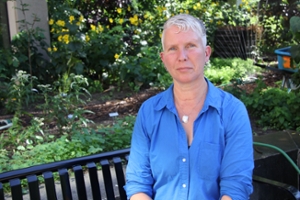Dr. Catriona Sandilands

Location: Festival Ballroom

In recent years, a growing body of research has emerged to indicate that plants demonstrate qualities that should rightly be called intelligence: they sense the world through a complex perceptual apparatus, respond to problems, and even communicate their perceptions and responses to both plant and animal others. At the same time, plants are currently treated as disposable, dead commodities on a scale unprecedented in human history: industrial agriculture, landscaping, and pharmacology, for example, have almost completely reduced plants to the status of "standing reserve" or "bare life." This presentation takes four interdisciplinary forays into the complex world of plant politics -- including combinations of botany, philosophy, literature, and anthropology -- in order to investigate this apparent paradox, with the aim of stimulating more attentive and reflective human/vegetal relations. Vegetation, here, appears as a complex practice that requires people to both reimagine and resituate plants.
Cate Sandilands is Professor and Canada Research Chair in Sustainability and Culture at York University. Her work lies at the intersections of queer and feminist theory, environmental philosophy and political theory, and cultural studies. She is the author of The Good-Natured Feminist: Ecofeminism and the Quest for Democracy (Minnesota, 1999) and co-editor of Queer Ecologies: Sex, Nature, Politics, Desire (Indiana University Press, 2010). The Good-Natured Feminist inaugurates a sustained conversation between ecofeminism and recent writings in feminist postmodernism and radical democracy. Starting with the assumption that ecofeminism is a body of democratic theory, the book tells how the movement originated in debates about "nature" in North American radical feminisms, how it then became entangled with identity politics, and how it now seeks to include nature in democratic conversation and, especially, to politicize relations between gender and nature in both theoretical and activist milieus. (Source: Amazon.com)
